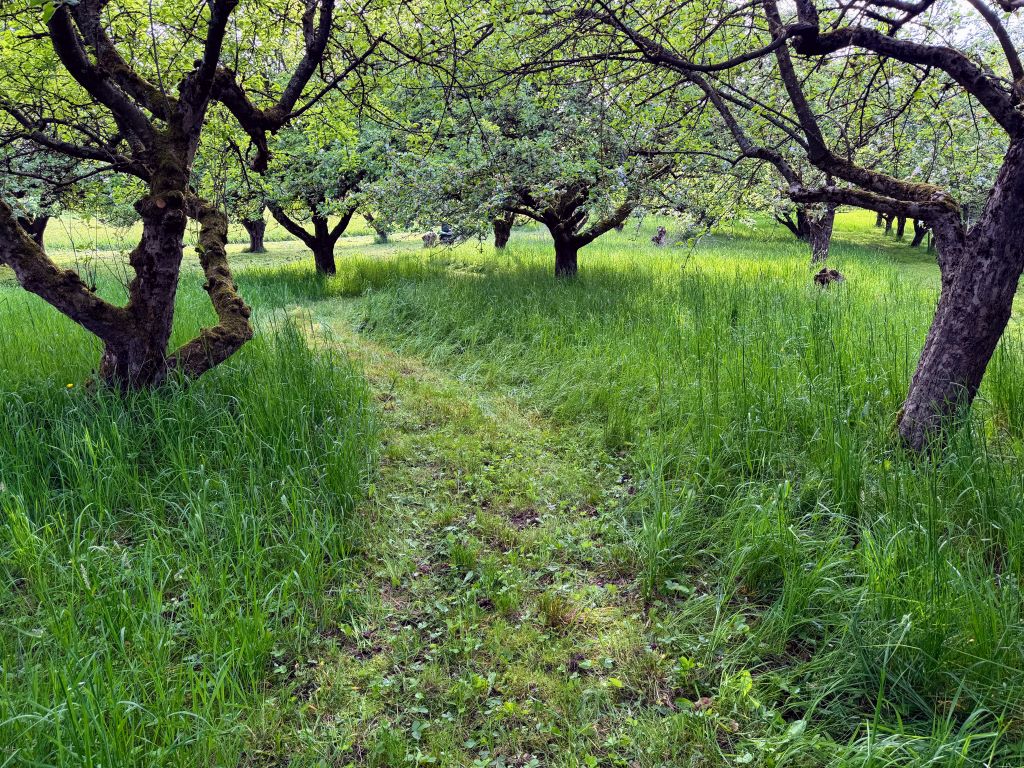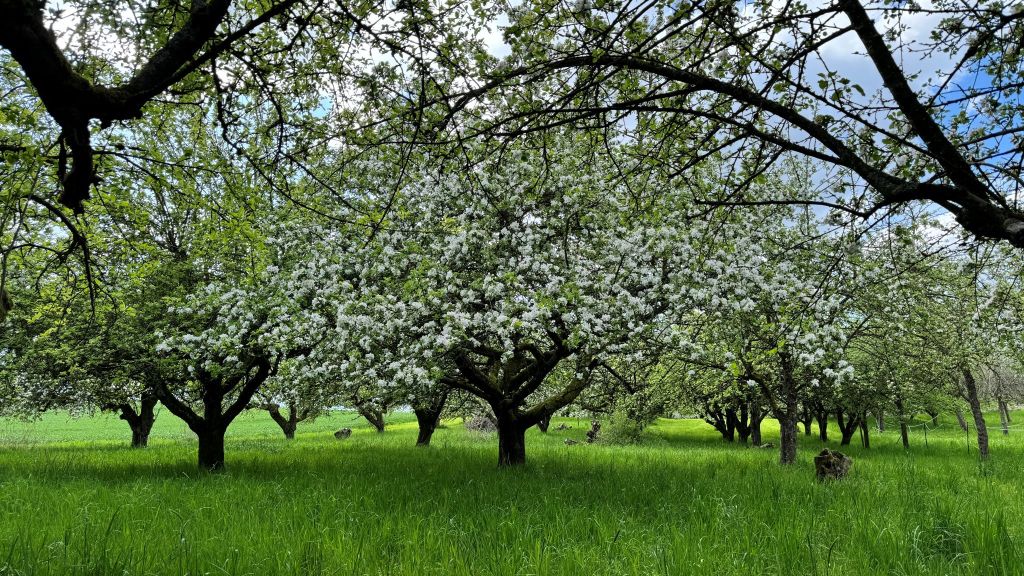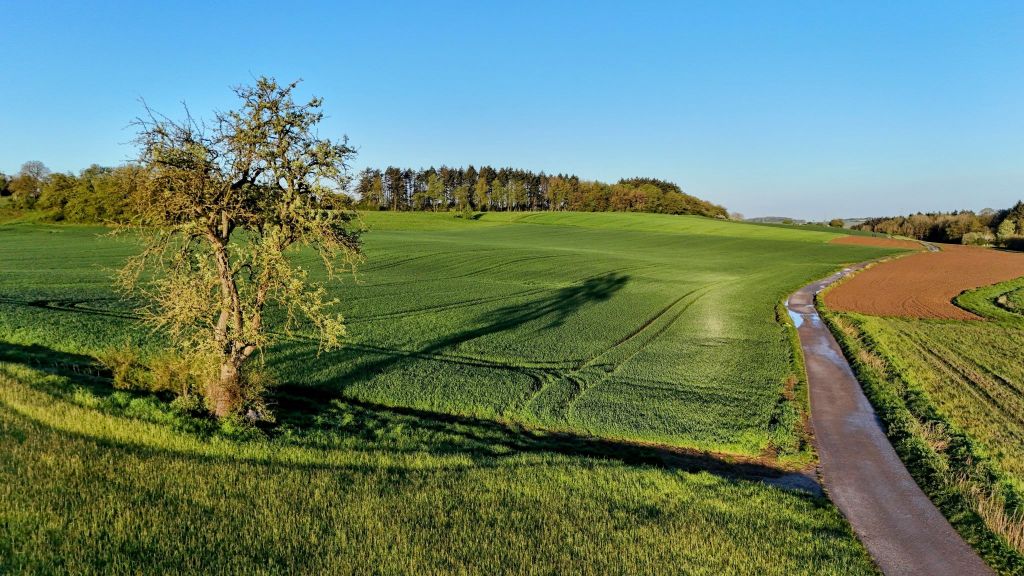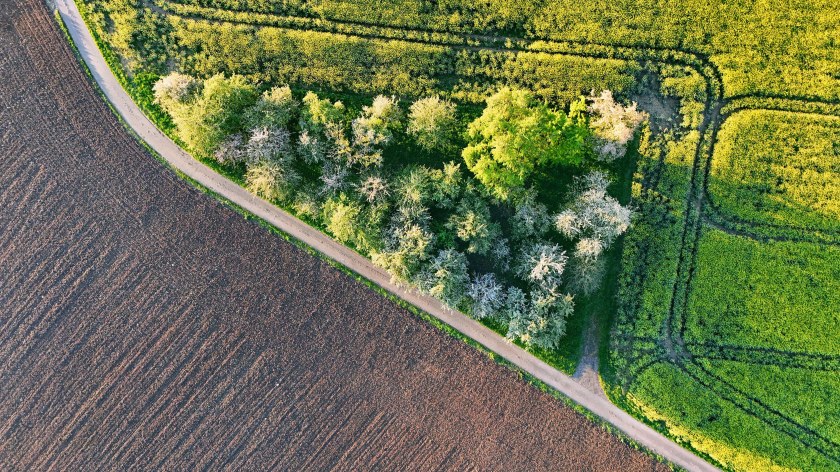I am a cider maker in Germany. I proudly make cider and slap that name on the front of my labels. But in Germany there is no definition of what cider is, so somewhere on my labels I am required by law to put the word Apfelwein, for which there is a legal definition. A fruit wine, made from apples, and I’m totally fine with that. Cider, Cidre, Apfelwein, Most, Viez, Sidra, Sagardoa, it’s all supposed to be fermented apple juice, the names reflecting regional differences across the rich tapestry of what we generally call cider.
Occasionally I have to shake my head at apparent regional or national chauvinism relating to cider. The idea that Apfelwein is completely different to or better than English cider, for example, baffles me. I was once told by a retailer of Apfelwein that they’d never stocked cider before. I didn’t understand what was meant, so held my tongue. The main actual difference is usually the varieties of fruit used, sometimes approaches to processing it, and the presentation of the final product. Nothing more really. It should all just be fermented apple juice.
But for some reason, well, I guess kind of obvious reasons, the image of “cider”, the meaning interpreted from this word, has become dominated by the industrialised, watered-down, concentrate-based, 35% juice content, served from tap in a pint glass, standard beer strength ciders primarily from the big producers of the UK and Ireland.
The sheer weight of presence of the likes of Magner’s, Bulmer’s, Strongbow, Somersby and that interpretation of cider in the central European market has meant that the common European understanding of the word cider has been irrevocably coloured to mean watered down, sweet, fizzy and served by the pint. And I think that’s dangerous. Once legislators get their hands on it, legislators who appear to have no understanding of the broader cider culture of Europe, this limited understanding gets enshrined in law and made permanent.

Austria – getting it wrong
What spurred this minor rant was learning from some visitors, just a couple of weeks ago, that Austria has a legal definition of cider. A definition that requires any product labelled as cider to be back sweetened and no more than 5% alcohol. From their legal regulation for Fruit Wine Ordinance, 2022.
“’Cider’ means a beverage made from a mixture of fruit juice with fruit wine of the same group of fruit species, with up to 5% alcohol vol. and an excess carbon dioxide pressure of not more than 2,5 bar at 20° C; the potential alcoholic strength by volume, including the sugar still present when converted into alcohol, must not exceed 8 % vol. “Fruit cider” must meet these requirements, but may be produced from fruit of different fruit species groups”.
And my thoughts return to the mass-produced, industrial, watered down, concentrate-based 35% juice content ciders. Austrian legislators have decided that cider means a fermented juice that must be back-sweetened. If it’s not back-sweetened it’s an Obstwein or Most of some sort.
On the one side, the idea of a culture that only has a limited understanding of the meaning the term cider making legal definitions horrifies me. On the other side, one can also say that the British definition is equally horrific, allowing dilution with up to 65% of water. Perhaps this is why the Austrians think is the norm? But it is an indication of how the blandification of mass-produced, industrial cider has unforeseen consequences. No wonder some adopt the invented tradition of spelling cider with a y to try and distance themselves from what cider has become. I may return to that particular invented tradition again.

Germany – a risk
While Germany does not have a legal definition of cider, the umbrella group for makers of fruit wine, the Association of the German Fruit Wine and Sparkling Fruit Wine Industry (VdFw), has some definitions on their website for what they believe apfelwein, cider and cidre are. Supposed to be a guide of sorts for their members, here is their description of what cider is.
“Cider is a common international term for alcoholic drinks based on apple juice. Very different drinks are produced and sold under the term cider in Europe. In the cider mother country, Great Britain, it is traditionally understood to be a carbonated, often significantly sweet cider, which is usually produced with the addition of water. In Germany, there is no legal definition of cider. An English cider that is marketed in Germany, for example, is declared here as a beverage containing Apfelwein. The VdFw sees the need to standardize the understanding and set minimum requirements and is committed to creating a definition of cider and its production in Germany.”
This is simply incorrect. It ignores completely the range of full juice ciders from Britain, fermented to their naturally full strength. It ignores ciders that are often served still or with just the lightest sparkle. It makes a gross assumption that all British cider, and therefore the very core definition of the term cider, must be something that has been watered down, so that it becomes a “drink containing Apfelwein”.
It ignores the 500ml and 750 ml bottled offerings, the bag-in-box options that dominate many UK pubs, the pet nats, the traditional methods… all of it subjugated to the idea that English cider is sweet and fizzy, relatively low in alcohol and served from tap as a beer alternative. It is both the curse and blessing of cider that it can span and cross-pollinate with so many other drinks categories, beer at one end and wine at the other, all while being it’s own extremely broad category.
A few years ago I came across one German brand that proudly stated on their website that to make their cider they bought bulk Apfelwein, back-sweetened it with apple juice concentrate, and hey-presto, they had created a cider. They had won awards for this, and they are not the only brand that was started under this misapprehension. Apfelwein is simply another word for a still cider to me, albeit generally a highly processed one.
Of late, more German cideries are producing products they refer to as Cidre, but I can accept that term, as most are producing something with an arrested fermentation to mimic the French style, using local apple varieties of course. The VdFw also has words about Cidre.
“A high residual sweetness and the carbon dioxide content give cider its tangy, fruity note. Cidre is the variant of cider that originally comes from France (more precisely from Brittany and Normandy). Today, some German cider producers also enrich their range with cidre produced in their own wineries. During cidre production, only a small proportion of the sugar contained in the must is fermented. As a result, its alcohol content is lower than that of our Apfelwein. The sweet “Cidre doux” has around 2 percent alcohol by volume, the rather bitter “Cidre brut” around 4 percent by volume”.
I sincerely hope that Germany does not make a legal definition of cider, as it will likely follow the model described above, and then I won’t be able to call my own products cider. Who knows what’s they’ll make of perry.

Poland – defining quality cider
Along the way we find some apparent attempts to codify full juice cider. Poland is one example, as they have some definitions of cider and perry that are rather interesting, in that they at least try to differentiate between something that has been diluted with water and that may have had sugar added, and those based on full juice and natural sweetening. Regular cider is defined as:
“cider, which is a beverage with an actual alcoholic strength by volume exceeding 1.2% vol. but not exceeding 8.5% vol. obtained by alcoholic fermentation of a cider still with the possibility of sweetening with glucose, fructose, concentrated apple juice, apple juice or substances defined in Article 2(4)(a), (e), (f) and (g) or colouring“.
Those letters at the end refer to various sugars, sweeteners or honey. But they also define a “quality cider”, cydr jakościowy, as:
“a cider with an actual alcoholic strength by volume exceeding 1.2% but not exceeding 8.5%, obtained by alcoholic fermentation of a quality cider still, possibly sweetened with apple must, apple juice, concentrated apple juice or honey”.
So a full juice cider that can be back-sweetened with juice or honey. But no water or sugar. I thought this was at least an interesting approach to differentiate between something that is watered down and something that is full juice. According to Natalia of Cider Explorer fame, these are mere technical definitions, and the average Polish consumer doesn’t have a clue what the difference is, but I think it must be down to the makers to also educate the consumer, and bang the drum for cydr jakościowy.

Where do we go from here?
I’ve rambled enough. Navigating the legal definition of every country is complicated and occasionally frustrating. I don’t want to burden you with a complete blow-by-blow from every country where cider is made, but it’s worth reading Haritz’s detailed breakdown of what is defined in Spain and the Basque Country.
But the point is, this misinterpretation and simplification of what cider is, and what it can be, is another consequence of the widespread watering down of cider. An unnoticed ripple across the continent. There are of course more obvious consequences of such low juice content. We’ve recently seen a physical, touchable representation of the impact that such definitions of low-juice content can have on orchards. James addressed the recent Heineken orchard destruction. Adam has spken about it on BBC radio, and has been vocal on social media about how UK Government cider policy is abetting such destruction.
While some may decry what they feel aspirational cider is doing to the perception of cider in general, it is a tiny drop of the world cider market, a parry against industrialisation. It is part of the cider spectrum, like any other marketable product.
The real fight, the thing cider advocates should be really concerned about, is getting cider to being as much actual juice as possible. To bring it back to reflecting the land from which it came, and encouraging drinkers to appreciate that agricultural heritage.
To the polititician influenced by industrial lobbiests it may seem a seemingly small thing. But a we have seen, it can have far-reaching consequences, from the destruction of orchards to the dilution of the very concept of what cider really is.
We, as advocates of real cider, should not remain silent.
All photos by Barry Masterson
